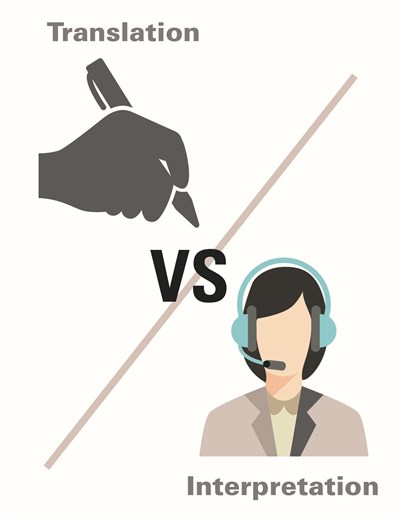Translation vs. Interpretation
Sometimes people tend to refer to interpreters as translators and that is because they are not always aware of the differences between the two professions. In this blog, I will go through some of the biggest differences between interpreters and translators.

Interpreter vs. Translator
Both interpreters and translators convey messages from one language to another, but interpreters work with spoken words in a particular context, and translators transfer written text from one language to another.
Interpretation is spoken and can be divided into 3 categories:
- Simultaneous: the interpreter hears the message and delivers it through a microphone connected to other headsets which allows the audience to hear the message in their own language.
- Consecutive: after the speaker finishes a sentence the interpreter delivers it in the requested language, it is used in business meetings, or even when heads of states meet and they don’t speak the same language so they require the services of an interpreter. No equipment is required for this.
- Chuchotage: (or whispering) this happens in small groups during business meetings and small conferences where the interpreters gather a small group and whisper the message at the same time it is being delivered by the speaker. No equipment is needed.
A major constraint is often the extreme speed at which the interpreter receives, understands, manages, reconstructs the message and conveys it in a different language. A translator may be able to translate 2000-3000 words a day, while an interpreter will probable do around 150 words a minute.
Translation, on the other hand, is written, which allows translators to spend a long time working on one text. Interpreters, often work in a team of two in one cabin or translation booth and are faced with people speaking and communicating simultaneously.
Conference Interpreting
Interpreters have always been involved in the development of international trade and cultural exchanges. Interpreters participate in international summits and meetings with heads of states and governments so it’s extremely important to have a high level of focus and concern for confidentiality.
Summary
Interpretation and translation are two terms that are used interchangeably. However, they are not synonyms. Interpretation is spoken and categorized as consecutive, simultaneous or chuchotage, and translation is written.
